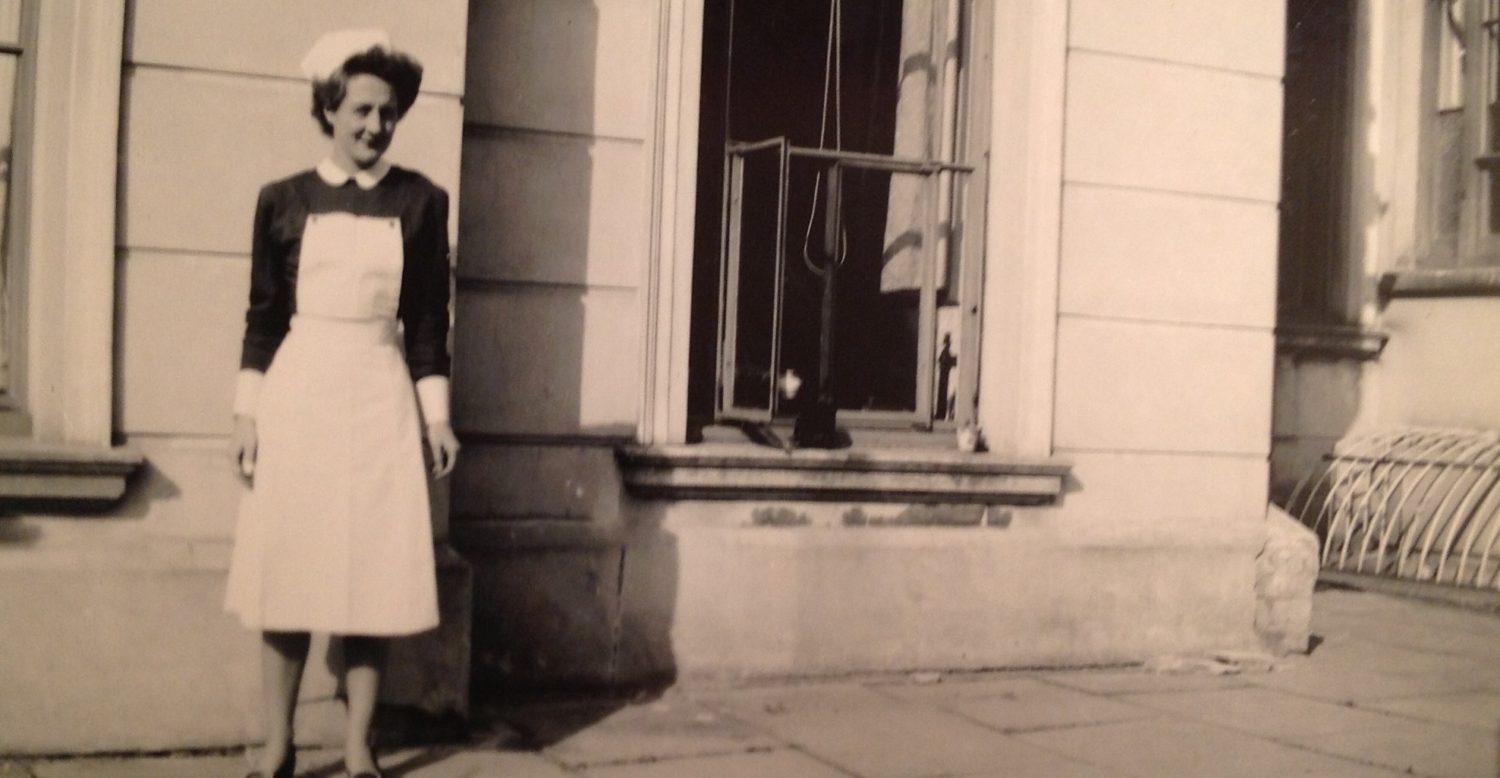A source of pride: the NHS and the nation
When it was created the NHS transformed access to healthcare for the poor and working classes. In 2018, people across our country remain committed to the values and principles which have informed it throughout its history, argues Stephanie Snow.
The 70th anniversary of the National Health Service has generated a wave of celebrations across the UK alongside serious initiatives to address the significant challenges that face today’s NHS. Since 1948, NHS history has been characterised by concerns about costs and design, which have prompted successive reforms to resolve these seemingly intractable issues. Within months of its launch, NHS costs exceeded the original estimates of expenditure. Charges were introduced for glasses and dentures in 1951; prescription charges followed in 1952.
The Guillebaud committee was tasked to review the cost of the service in 1953 and published its report in 1956. Contrary to expectations, the committee concluded that the NHS was good value for money and that it justified receiving a greater percentage of the gross national product. It also highlighted the contradictions of the tripartite design of the NHS which brought together hospitals, GPs, dentists, opticians and local authority services.
Since the 1970s, new medical technologies and treatments along with a growing and ageing population have caused governments across the world, particularly those with welfare states and finite budgets, to struggle to provide the best health outcomes. In 2018, concerns about patient safety and effectiveness of care in the NHS are higher than ever, with daily reports of crisis and system failure.
Nevertheless, the anniversary has catalysed an outpouring of support for the institution from staff and patients alike. The NHS is “one of the greatest riches we have as a nation, it is to be treasured, valued and enhanced“, one of those we interviewed for our NHS at 70 project told us. To understand the deep and enduring value the NHS holds for people we have to return to its creation and the definitive role of Aneurin Bevan.
Bevan, Wales and the NHS
The NHS that Bevan developed was not a watertight blueprint of services and structures. It brought together a patchwork of existing services and people: more than 3,000 hospitals; more than 250,000 staff and 1000s of GP practices and public health services. Opposition to its creation came from all quarters; doctors who did not want to become instruments of the state; MPs who feared the economic and social burden for the state; local authorities which resisted losing control of their hospitals; and teaching hospitals wanting to preserve their independence. “The new Health Service has been having a most uneasy gestation and a very turbulent birth, but all prodigies behave like that,” Bevan said on 25 June 1948. The glue that stuck the NHS together and has kept it at the centre of British everyday life over the past 70 years was Bevan’s vision of improving health by establishing free and equal access to care determined by clinical need rather than ability to pay.
From the 1900s onwards, ideas of a comprehensive health system had emerged in Britain from various quarters including the Fabian Society. By the second world war, there was a broad consensus around the need for a collective system although assumptions were that such a system would develop from established structures including local authorities and voluntary hospitals and be financed through health insurance. The Labour party’s landslide election victory in 1945 was unexpected and resulted in Bevan becoming a minister in Clement Attlee’s government. In its form and spirit, the service that was launched on 5 July 1948 was the product of its creator.
Bevan was born in 1897 in Tredegar, a mining town in the South Wales valleys. His father was a miner, his mother a seamstress, and Bevan left school at the age of 13 to work in the colliery. He saw his friends struggle through the Great Depression, some emigrating to find new opportunities. He became involved in trades unions and local politics and led local miners in the general strike of 1926. In 1929, the year of the stock market crash, Bevan was elected as MP for Ebbw Vale. Bevan’s political activities, at local and national level, were rooted in his experiences of living and working in the South Wales valleys where the physical and intellectual landscape was carved out by the mining and steel industries and working class struggles for better wages and working conditions. Tredegar was notable for having a Workmen’s Medical Aid Society which had been formed in 1890 and by 1933 supplied 95 per cent of the local population’s health needs. Philip Prosser, born in 1939 with ‘club foot’, was able to have several surgical operations because his father paid a weekly subscription to the society. “It was exactly the same as the NHS in 1948. We already had it in Tredegar before that,” he said in an NHS at 70 interview.
Close connections between Bevan’s early experiences and his development of the NHS are revealed in his collection of essays, In Place of Fear, published in 1952. These illuminate his belief in the need for the welfare of ‘ordinary men and women’ to be placed high on the political agenda and explain how his political activities were shaped by the ‘texture’ of his life as a young miner. In a chapter entitled A Free Health Service, Bevan discusses the principles which informed the NHS; that medical treatment and care is a collective respon-sibility and should be made available to people regardless of ability to pay, according to medical need and no other criteria. Financial anxiety during sickness hindered recovery and was unnecessarily cruel, he insisted. The fear of heavy medical bills caused people to delay seeking medical atten-tion which resulted in more sickness and often permanent disability. He highlighted the particular needs of mothers who suffered most from lack of free healthcare because ‘she puts her own needs last’. Financing the health service out of general taxation was, he argued, a much fairer way of ensuring that all citizens had equal access to care when they were sick.
Bevan’s vision of a universal health service, free at the point of need, disrupted earlier ideas but it chimed strongly with the post-war public appetite for establishing a fairer society and a new social order. It was rooted in Bevan’s deep understanding of the centrality of health for individuals, communities and social productivity and it attracted people like Joan Meredith to campaign for a national health service.
”We just wanted one that was free you know. That everybody could have… I belonged to an organisation – the Young Christian Workers – that did want to help people, that did do that through politics… because we wanted to change the world, we wanted to have some kind of equality and particularly for poor people,” she said in her NHS at 70 interview.
The NHS became rapidly embedded in British identity. The service was “a notable exhibit in the shop-window of our British way of life“, noted Teddy Chester, director of the Acton Trust, in 1955. By the late 1950s, it was difficult for ‘the average Englishman’ to imagine life without a health service as it had ‘contributed so much to his physical and mental well-being’, observed Almont Lindsay, professor of history at the University of Virginia. Bevan was sanguine about the defects in the service such as the continuing existence of pay beds in hospitals and anticipated the need for improvements on every level. His pride lay in the ‘massive contribution’ the NHS was making ‘to the equipment of a civilised society’. He added: “It has now become part of the texture of our national life.”
Throughout its 70 years, the NHS has retained its prominence in British life. This was demonstrated in 2012, when frilly-capped nurses and doctors (many of them NHS staff) danced around hospital beds in the extravaganza that opened the London Olympic Games. It was a ‘quintessentially British spectacle’, observed American commentator, Cassie Chambers. For US citizens, healthcare systems and national pride were not natural bedfellows, but Chambers said she was transfixed by the use of the NHS as a symbol of achievement and inspired by seeing the ‘UK vision on display’.
NHS at 70 has been collecting interviews from patients and staff ranging in age from 18 to 97 years. Those in their 80s and 90s who witnessed the beginning of the NHS have nuanced memories. Families who could afford to pay for medical care and those covered by subscription schemes noticed little difference. For poorer people, it transformed lives, entitling them to treatment they had not previously been able to afford. Across the generations people have shared their experiences of poor quality care, disillusionment with political reforms, racial discrimination and the stress of working and being treated in an overloaded system. They advocate the need for change on many levels, they talk about using private medicine to circumvent long waiting lists or travelling abroad for better quality treatment. Nevertheless, their pride and belief in NHS principles remain steadfast. The NHS is synonymous with freedom from the fear of the consequences of ill-health for individuals and their families. When asked what value the NHS holds for them, many people reply simply: “I owe it my life.”
For staff, sharing the most difficult parts of people’s lives leaves an emotional legacy. A retired nurse told us that 40 years on, she still remembered the names of children who had died on her ward. Interviewees also have a strong awareness, and sometimes direct experience, of what life is like in other countries where access to healthcare can be limited by financial means. For this reason, the NHS is seen as a source of national pride and described by some as ‘the envy of the world’.
Going forward
Understanding the enduring value the NHS has for people, whatever the everyday deficiencies in services, is essential for policy makers considering reform. People remain committed to the idea of an NHS because it is a symbol of compassion, fairness and equality. It is woven so tightly into the fabric of their everyday lives, from conception through to death, that contemplating its disappearance or significant alteration is unimaginable. For this reason, public resistance to hospital closures and reorganisation of services that appear to diminish access to care has been extremely strong over the course of NHS history. For many people, the NHS is the ‘still point of a turning world’ and it is no coincidence that the 70th anniversary is generating so much support given the wider context of Brexit and fractured views about the UK’s identity and place in the world.
After Bevan’s death in 1960, Jennie Lee, his wife, wrote: “He was a great humanist whose religion lay in loving his fellow men and trying to serve them.” The NHS grew out of Bevan’s vision to improve life and limit suffering for all members of society and it continues, however imperfectly, to encapsulate these values for people. Seventy years after its creation it stands as the strongest benchmark of humanitarianism and civilisation in UK life.

